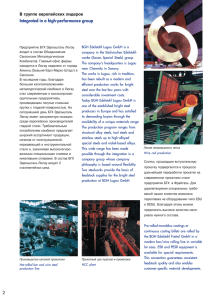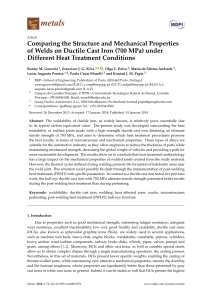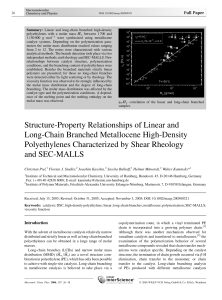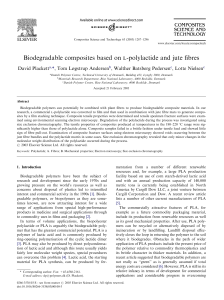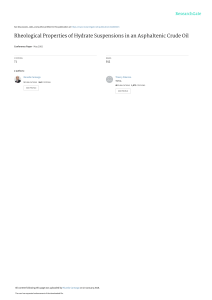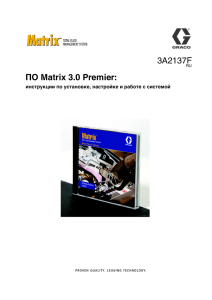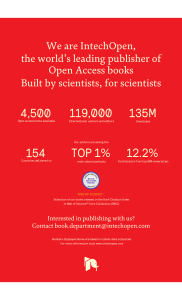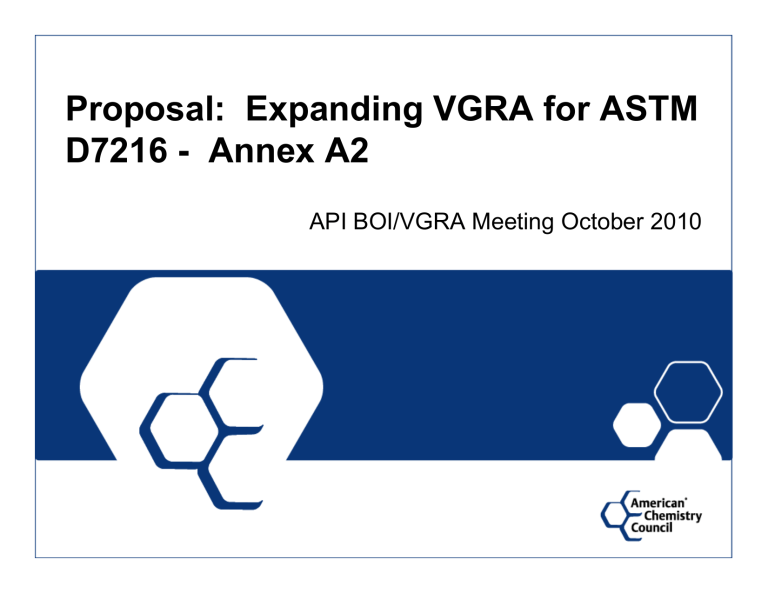
Proposal: Expanding VGRA for ASTM D7216 - Annex A2 API BOI/VGRA Meeting October 2010 VGRA for ASTM D7216 Annex A2 Current Status Extensive data was collected and analyzed to support the existing VGRA adopted by API for the SAE viscosity grades: 0W-20, 0W-30,5W-20,5W30,10W-30 and 10W-40 VGRA for ASTM D7216 Annex A2 Current Status Extending the VGRA to other grades would be beneficial since the API SN specification also requires elastomer testing. One company indicated that the elastomer data was quite insensitive to viscosity grade changes and that those parameters where differences were seen were correlated to BOV VGRA for ASTM D7216 Annex A2 Current Status Since technology impacts the elastomer results and limited data existed in some viscosity grades individual companies performed data analyses. Focus of analysis was to determine if there was parameter sensitivity to change in viscosity grade and if so whether BOV was appropriate to describe the sensitivity. Company A – ASTM D7216 A2 Extending VGRA Study Viscosity Grade Study • ASTM D7216 A2 VGRA study – Same DI/VM/PPD system • – Gp II base stock slate – Same Lab – Viscosity grades tested • Covered by Current VGRA table – 5W-20 – 10W-30 – 10W-40 • Not covered by current VGRA table – 15W-40 – 20W-50 – SAE 30 – SAE 40 For some seal parameters, the data showed correlation to viscosity grade Company A – ASTM D7216 A2 Extending VGRA Study Explanation of Graphs Seal parameter results were plotted verse formulation BOV @ 100C • Line for Average of all results was added along ± reproducibility for that parameter. • Where correlation was found to be significant – that line is shown along with R2 & p Variable R Variable R ACM-1 Volume Change, % 0.48 FKM-1 Volume Change, % 0.50 ACM-1 Hardness Change, Points 1.71 FKM-1 Hardness Change, Points 2.91 ACM-1 Tensile Strength Change, % 13.86 FKM-1 Tensile Strength Change, % 10.95 HNBR-1 Volume Change, % 0.53 AEM-1 Volume Change, % 1.37 HNBR-1 Hardness Change, Points 2.44 AEM-1 Hardness Change, Points 2.02 HNBR-1 Tensile Strength Change, % 13.19 AEM-1 Tensile Strength Change, % 7.53 VMQ-1 Volume Change, % 7.48 VMQ-1 Hardness Change, Points 7.06 VMQ-1 Tensile Strength Change, % 8.46 R = Reproducibility: from EOEC Information Letter 09-2 (9/1/2009). Based on TMC reference oil 1006-1 from 2/19/09 to 4/30/09 Polyacrylate (ACM-1) vs. Base Oil Vis @ 100°C -0.3 4.3 SAE 40 -6.1 SAE 40 SAE 40 12.0 Base Oil Viscosity @ 100C, cSt 11.0 20W-50 20W-50 20W-50 R2: 0.97 p: <0.0001 10.0 SAE 30 9.0 SAE 30 SAE 30 8.0 15W-40 7.0 6.0 15W-40 10W-40 10W-30 5.0 0.0 10W-40 10W-30 10W-40 10W-30 5W-20 5W-20 -5.0 15W-40 5.0 ACM-1 Volume 10.0 -10.0 -5.0 0.0 5.0 ACM-1 Hardness 10.0 5W-20 -40.0 -20.0 0.0 20.0 40.0 ACM-1 Tensile May be significant if p <= 0.05 Hydrogenated Nitrile (HNBR-1) vs. Base Oil Vis @ 100°C -0.6 SAE 40 -0.7 3.6 SAE 40 SAE 40 12.0 Base Oil Viscosity @ 100C, cSt 11.0 20W-50 20W-50 R2: 0.73 p: 0.014 10.0 9.0 20W-50 R2: 0.73 p: 0.014 SAE 30 SAE 30 SAE 30 8.0 15W-40 7.0 6.0 15W-40 10W-40 10W-30 5.0 10W-40 10W-30 5W-20 -5.0 0.0 15W-40 5.0 HNBR-1 Volume 10W-40 10W-30 5W-20 10.0 -10.0 -5.0 5W-20 0.0 HNBR-1 Hardness 5.0 -20.0 -10.0 0.0 10.0 HNBR-1 Tensile May be significant if p <= 0.05 Silicon (VMQ-1) vs. Base Oil Vis @ 100°C 15.5 -13.4 -9.5 SAE 40 SAE 40 SAE 40 12 Base Oil Viscosity @ 100C, cSt 11 20W-50 20W-50 R2: 0.96 p: <0.0001 10 9 20W-50 R2: 0.99 p: <0.0001 SAE 30 R2: 0.89 p: 0.001 SAE 30 SAE 30 8 15W-40 7 6 15W-40 10W-40 10W-30 5 10W-40 10W-30 5W-20 0.0 10.0 20.0 30.0 VMQ-1 Volume 15W-40 10W-40 10W-30 5W-20 40.0 -30.0 -20.0 5W-20 -10.0 0.0 VMQ-1 Hardness 10.0 -40.0 -20.0 0.0 20.0 VMQ-1 Tensile May be significant if p <= 0.05 Fluorocarbon (FKM-1) vs. Base Oil Vis @ 100°C 0.3 -0.4 SAE 40 -12.3 SAE 40 SAE 40 12 Base Oil Viscosity @ 100C, cSt 11 20W-50 20W-50 SAE 30 SAE 30 20W-50 10 9 SAE 30 8 7 6 15W-40 15W-40 10W-40 10W-30 10W-40 10W-30 5 5W-20 -2.0 -1.0 0.0 15W-40 10W-40 10W-30 5W-20 1.0 FKM-1 Volume 2.0 3.0 -6.0 -4.0 -2.0 5W-20 0.0 2.0 FKM-1 Hardness 4.0 6.0 -60.0 -40.0 -20.0 0.0 FKM-1 Tensile May be significant if p <= 0.05 Ethylene Acrylate (AEM-1) vs. Base Oil Vis @ 100°C 13.4 12 -5.4 SAE 40 2.3 SAE 40 SAE 40 Base Oil Viscosity @ 100C, cSt 11 20W-50 20W-50 10 20W-50 R2: 0.97 p: <0.0001 R2: 0.96 p: <0.0001 9 SAE 30 SAE 30 SAE 30 8 7 15W-40 15W-40 15W-40 6 10W-40 10W-30 10W-40 10W-30 5W-20 5W-20 10W-40 10W-30 5 0.0 10.0 20.0 AEM-1 Volume 30.0 -20.0 -10.0 5W-20 0.0 AEM-1 Hardness 10.0 -30.0 -20.0 -10.0 0.0 10.0 20.0 30.0 AEM-1 Tensile May be significant if p <= 0.05 Company A – Conclusions • Within the same Gp II slate, 8 out of 15 seal parameters show a response to formulation BOV – BOV range for “ILSAC grades” was 1cSt – BOV range for “Non-ILSAC grades” was 6.6cSt • Results from the other seal parameters not responsive to BOV fall within the repeatability of the average – repeatability defined by reference oil T1006 Variable Summary BOV (Visgrade) Impact ACM-1 Volume Change, % Yes ACM-1 Hardness Change, Points No ACM-1 Tensile Strength Change, % No HNBR-1 Volume Change, % Yes HNBR-1 Hardness Change, Points Yes HNBR-1 Tensile Strength Change, % No VMQ-1 Volume Change, % Yes VMQ-1 Hardness Change, Points Yes VMQ-1 Tensile Strength Change, % Yes FKM-1 Volume Change, % No FKM-1 Hardness Change, Points No FKM-1 Tensile Strength Change, % No AEM-1 Volume Change, % Yes AEM-1 Hardness Change, Points Yes AEM-1 Tensile Strength Change, % No Company B Investigation of VGRA extension – ASTM D7216 Annex A2 Company B analyzed by parameter across the multiple seal materials Three Group II basestocks were included in the analysis with two different DI systems Volume Hardness Tensile Strength Company B – Data Range Data Spread Seal Ethylene Acrylic AEM-1 Fluorocarbon FKM-1 Nitrile HNBR-1 Polyacrylate ACM-1 Silicone VMQ-1 Variable Volume Hardness Tensile Strength Volume Hardness Tensile Strength Volume Hardness Tensile Strength Volume Hardness Tensile Strength Volume Hardness Tensile Strength Limits LimitSpread % -5 to 30 35 pts -20 to 10 30 % -30 to 30 60 % -2 to 3 5 pts -6 to 6 12 % -65 to 10 75 % -5 to 10 15 pts -10 to 5 15 % -20 to 15 35 % -5 to 10 15 pts -10 to 10 20 % -40, 40 80 % -5 to 40 45 pts -30 to 10 40 % -50 to 5 55 Data Range 8.79 8 14.9 0.79 3 19.7 4.12 3 15.1 4.05 7 10.9 20 19 39 %LimitSpreadUsed 25 27 25 16 25 26 27 20 43 27 35 14 44 48 71 Range of Variable %LimitSpreadUsed Volume 16 to 44 Hardness 20 to 48 Tensile Strength 14 to 71 Company B Investigation of VGRA extension – ASTM D7216 Annex A2 Company B Data spread is relatively narrow showing that even when basestock slates and technologies were modified the data for seal parameters were not greatly influenced over a wide span of BOV. Parameters may show no correlation within the span but, at a minimum, bracketing by BOV should provide ample measure of seal compatibility. Company C Investigation of VGRA extension – ASTM D7216 Annex A2 Company C evaluated two Group II and a Group II / Bright Stock mixture Data was collected over a 6 month period and included two laboratories Company C Elastomer Data Overview • ASTM D7216 A2 data - same DI/PPD system – For multigrade oils, the same VM is used – Oils are from two Group II base stock slates and one Group II/Bright Stock mix – Data is from two independent test labs – Data was generated in the past 6 months (majority from the last 2 months) – Viscosity grades tested • Covered by current VGRA table – – – – 5W-20 5W-30 10W-30 10W-40 • Not covered by current VGRA table – 20W-50 – SAE 30 – SAE 40 Company C Correlation Summary • • • • Across this single DI/PPD system, 7 out of 15 seal parameters show a response to formulation BOV BOV impact determined based on the P-value threshold of 0.1 BOV range for “ILSAC grades” is 0.9 cSt BOV range for “Non-ILSAC grades” is 6.0 cSt Variable BOV (Visgrade) Impact ACM-1 Volume Change, % Yes ACM-1 Hardness Change, Points No ACM-1 Tensile Strength Change, % Yes HNBR-1 Volume Change, % No HNBR-1 Hardness Change, Points No HNBR-1 Tensile Strength Change, % No VMQ-1 Volume Change, % Yes VMQ-1 Hardness Change, Points Yes VMQ-1 Tensile Strength Change, % Yes FKM-1 Volume Change, % No FKM-1 Hardness Change, Points No FKM-1 Tensile Strength Change, % Yes AEM-1 Volume Change, % Yes AEM-1 Hardness Change, Points No AEM-1 Tensile Strength Change, % No Polyacrylate (ACM-1) vs. Base Oil Vis @ 100°C Company C Hydrogenated Nitrile (HNBR-1) vs. Base Oil Vis @ 100°C Company C Silicon (VMQ-1) vs. Base Oil Vis @ 100°C Company C Fluorocarbon (FKM-1) vs. Base Oil Vis @ 100°C Company C Ethylene Acrylate (AEM-1) vs. Base Oil Vis @ 100°C Company C Company C Conclusion and Request • Data suggests that VGRA can be extended • BOV appears to be appropriate measure foe those parameters showing viscosity grade sensitivity Company D Investigation of VGRA extension – ASTM D7216 Annex A2 Dataset Description All data run in certified stands in 2010 10 oils, 3 10W-30, 2 10W-40, 3 15W-40, 1 15W-50, 1 20W-50. Constant DI and Treat rate. Constant VI. Same Grp II Basestock Slate, 4 oils mixed with minor amount Grp III % Volume Change Company D Silicone (VQM) Nitrile (HNBR) PolyAcrylate (ACM) Fluorocarb (FKM) Ethyl Acryl (AEM) 12.00 11.00 B OB V , cS t 10.00 9.00 8.00 7.00 6.00 5.00 -5 0 5 10 -5 0 5 10 -5 10 25 40 -2 -1 0 1 2 3 -5 5 15 25 X Axis width of each graph is GF-5 Specification Passing Range for that elastomer. Arrows depict Volume Change ASTM Reproducibility Range for each elastomer. Hardness Change Company D Ethyl Acryl (AEM) Nitrile (HNBR) PolyAcrylate (ACM) Silicone (VQM) Fluorocarb (FKM) 12.00 11.00 B OB V , cS t 10.00 9.00 8.00 7.00 6.00 5.00 -10 -5 0 5 10 -10 -5 0 5 -30 -20 -10 0 10 -6 -4 -2 0 2 4 6 -20 -10 0 X Axis width of each graph is GF-5 Specification Passing Range for that elastomer. Arrows depict Hardness Change ASTM Reproducibility Range for each elastomer. 10 Tensile Strength % Change Company D PolyAcrylate (ACM) Silicone (VQM) Nitrile (HNBR) Fluorocarb (FKM) EthylAcryl(AEM) 12.00 11.00 BOBV, cSt 10.00 9.00 8.00 7.00 6.00 5.00 -40 -20 0 20 40 -20 -10 0 10 -30 -20 -10 0 10 -65 -40 -15 10 -30 -15 0 15 X Axis width of each graph is GF-5 Specification Passing Range for that elastomer. Arrows depicts Tensile Strength ASTM Reproducibility Range for each elastomer. 30 Seal Type / Parameter Observed Range of results ASTM R as 1.33 0.90 -0.65 Supports BOBV trend. Also supports Full VGRA. Hardness 4 2.9 -0.02 Supports Full VGRA Tensile 14.0 19.2 -0.32 Supports Full VGRA HNBR Volume 1.31 1.7 -0.66 Supports BOBV trend. Also supports Full VGRA. 2 2.4 0.06 Supports Full VGRA. No evidence of BOBV impact. 10.1 13.6 0.03 Supports Full VGRA 0.20 0.42 -0.04 Supports Full VGRA Hardness 1 2.8 -0.16 Supports Full VGRA Tensile 10.4 12.2 -0.01 Supports Full VGRA 7.25 7.5 -0.72 Supports BOBV trend. Also supports Full VGRA. 6 5.7 +0.79 Indicates BOBV trend. Also supports Full VGRA. 11.8 10.6 +0.40 Supports BOBV Trend. Also supports Full VGRA. 3.16 2.2 - 0.81 Data indicates BOBV trend. Also supports Full VGRA. 2 2.5 +0.30 Data supports Full VGRA. Weakly supports BOBV trend. 7.9 10.8 +0.06 Supports Full VGRA. ACM Volume Hardness Tensile FKM VMQ Volume Volume Hardness Tensile AEM Volume Hardness Tensile of July 15 2010 Trend R2 Conclusion Conclusions – Company D All data within expected Statistical Range 10 of 15 within ASTM R, all others within 95 % Confidence Studentized Range, “q” @ n=10 Results thus support Full VGRA between all SAE grades up to 20W-50. Supports BOBV Trends seen in other data. Conclusions 4 Companies with 5 technologies have data supporting extending VGRA for this elastomer test for grades beyond those already covered. Proposal is to ADD additional VGRA beyond existing viscosity grade table Majority of data indicates that over a very wide range of viscosity grades and BOV there is little effect to most seal parameters All data sets support the concept of bracketing by Base Oil Viscosity for the parameters where some variation is seen. Proposal to Expand current VGRA for D7216 Annex A2 For Viscosity Grades not currently on the VGRA table For Now: BOV Bookends, all Parameters Consider later Dropping Bookend on Parameters as indicated by further data. Proposal to Expand current VGRA for D7216 Annex A2 Augment the current VGRA Table with the following: For viscosity grades not listed in the table above, bracketing two passing formulations for a given technology may be used to waive additional testing. VGRA is allowed if the candidate’s base oil viscosity @100°C falls within the range of the base oil viscosity @100°C of the 2 passing formulations. Base Oil Viscosity @ 100°C, cSt D7216 A2 Result Test Required? Reason Matrix Oil 1 Matrix Oil 2 Candidate Oil A Candidate Oil B 4.6 10.9 9.0 12.4 Pass Pass No Yes Formulation falls within the base oil viscosity range Formulation does not fall within the base oil viscosity range
